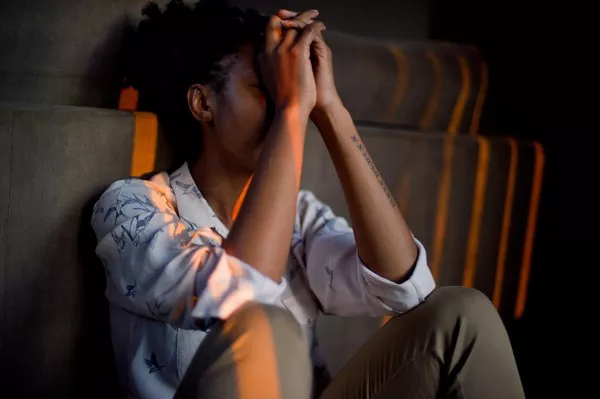Love is a complex and multifaceted emotion that can be both exhilarating and challenging. Relationships often start with intense feelings of love, passion, and excitement, but over time, these feelings can change. Understanding when a relationship has run its course is crucial for personal well-being and growth.
The Evolution of Love
In the early stages of a relationship, love is often characterized by a deep sense of connection and infatuation. Partners are eager to spend time together, and their lives are intertwined with shared dreams and aspirations. However, as time passes, the initial excitement can wane. It’s essential to recognize that this shift doesn’t necessarily mean the love is gone, but it can be a sign that the relationship is evolving. Sometimes, this evolution leads to a deeper, more mature love, while other times it may reveal underlying issues that need addressing.
Communication Breakdown
One of the most telling signs that a relationship is over is a breakdown in communication. Love thrives on open, honest, and respectful dialogue. When partners stop sharing their thoughts and feelings, misunderstandings and resentment can build up. If you find that conversations with your partner are becoming increasingly rare or hostile, it might be a sign that the love is no longer enough to sustain the relationship. Effective communication is the cornerstone of any healthy relationship, and its absence can indicate deeper problems.
Loss of Intimacy
Intimacy is a vital component of love in any relationship. It encompasses emotional, physical, and sexual closeness. When the love in a relationship starts to fade, intimacy often declines as well. You may notice a decrease in physical affection, such as holding hands, hugging, or kissing. Emotional intimacy, including sharing personal thoughts and feelings, may also diminish. A sustained lack of intimacy can be a clear sign that the relationship is over, as love without intimacy can feel empty and unfulfilling.
Growing Apart
People change and grow over time, and sometimes partners grow in different directions. Love should support and encourage personal growth, but when partners no longer share common interests or goals, it can create a rift. If you find that your partner no longer understands or supports your dreams and ambitions, or if you feel disconnected from their life, it might be a sign that the love has faded. Growing apart can be a gradual process, but it often leads to a realization that the relationship no longer serves both parties.
Persistent Unhappiness
While every relationship has its ups and downs, persistent unhappiness is a significant red flag. Love should bring joy, comfort, and a sense of fulfillment. If you or your partner feel consistently unhappy, despite efforts to address the issues, it may indicate that the relationship is over. Constant feelings of sadness, frustration, or dissatisfaction can erode the love that once existed. It’s important to listen to your emotions and recognize when the relationship is causing more harm than good.
Lack of Effort
A healthy relationship requires effort from both partners. Love is not a static emotion but one that needs nurturing and care. When one or both partners stop making an effort to maintain the relationship, it can be a sign that the love is no longer there. This lack of effort can manifest in various ways, such as neglecting to spend quality time together, failing to resolve conflicts, or taking each other for granted. Without mutual effort, a relationship cannot thrive, and the absence of love becomes evident.
See Also: How do guys act when they like a girl?
Constant Conflict
Conflict is a natural part of any relationship, but how it is handled can indicate the health of the love between partners. If conflicts become frequent and are resolved in unhealthy ways, such as through yelling, blaming, or avoiding, it can signal that the relationship is over. Healthy love involves resolving disagreements with respect and understanding. When conflict becomes destructive and constant, it can erode the foundation of love and trust that the relationship is built upon.
Feeling Trapped
Love should make you feel free and supported, not trapped or confined. If you feel like you are stuck in a relationship out of obligation, fear, or convenience, it may be a sign that the love has diminished. Feeling trapped can lead to resentment and a sense of being unfulfilled. It’s important to assess whether your relationship is providing you with the emotional support and freedom you need. If not, it may be time to reconsider the future of the relationship.
Loss of Respect
Mutual respect is a cornerstone of love in any relationship. When respect is lost, the foundation of the relationship can crumble. Disrespect can manifest in various ways, such as belittling, ignoring boundaries, or consistently putting one’s needs above the other’s. If you find that respect is lacking in your relationship, it can be a clear sign that the love is no longer healthy or sustaining. Respect is essential for maintaining trust and harmony, and its absence can indicate that the relationship is over.
Seeking Validation Elsewhere
In a healthy relationship, partners seek validation and support from each other. When the love begins to fade, individuals may start seeking validation outside the relationship. This can include emotional or physical affairs, excessive reliance on friends or family for support, or engaging in activities that distance oneself from the partner. Seeking validation elsewhere can be a sign that the relationship is no longer fulfilling and that the love is not strong enough to meet emotional needs.
Conclusion
Recognizing when a relationship is over is a challenging but necessary step in ensuring personal well-being and growth. Love is a powerful emotion that can evolve and change over time. While some relationships grow stronger, others may reach a natural end. The signs of a relationship being over—such as communication breakdown, loss of intimacy, growing apart, persistent unhappiness, lack of effort, constant conflict, feeling trapped, loss of respect, and seeking validation elsewhere—are indicators that the love may no longer be sufficient to sustain the partnership.
It’s important to listen to your emotions and assess the health of your relationship honestly. Love should bring joy, support, and fulfillment. When it no longer does, it may be time to consider moving on for the sake of both partners’ happiness and growth. Ending a relationship can be difficult, but it can also open the door to new opportunities for love and personal development.
Related topics:
























